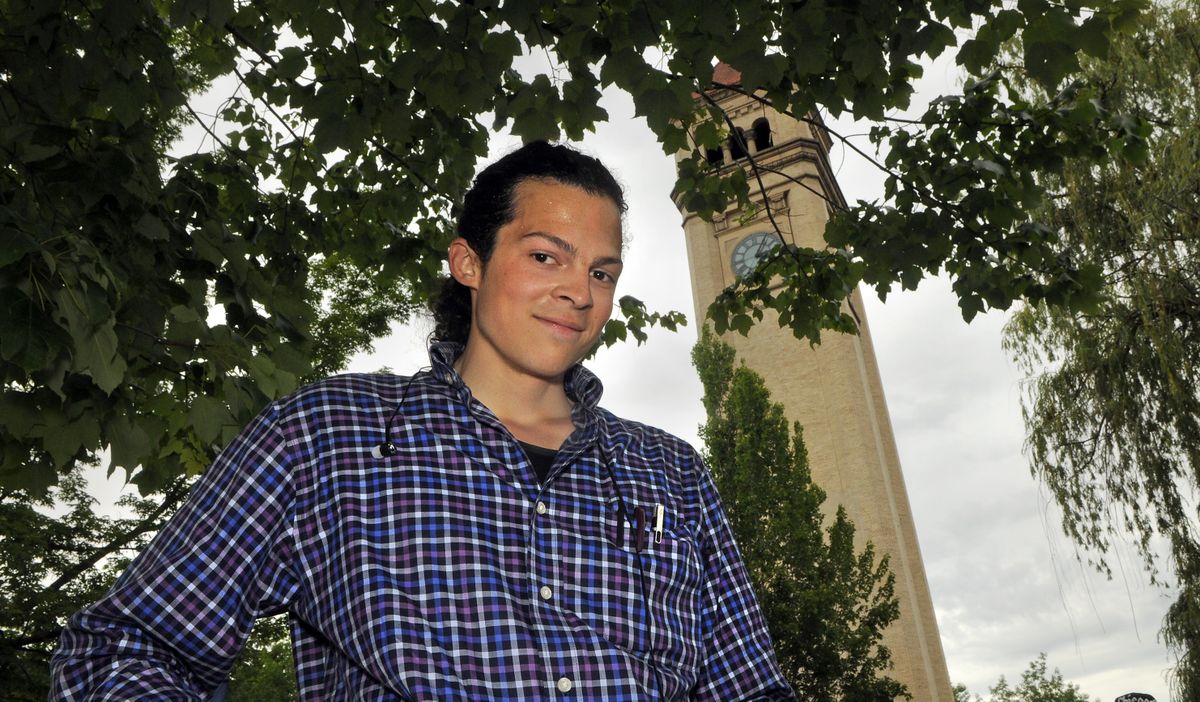Fourth of July protest aftermath fueled police reform

Five years ago today Zachary St. John, Michael Lyons and 16 others were arrested in Riverfront Park when police broke up a protest decrying police misconduct.
The participants, mostly dressed in black, marched through Peaceful Valley and downtown. By the time police intervened, the protest had settled into a peaceful picnic, though many gathering in the park for fireworks were offended that some protesters were sitting on an American flag.
The event was focused on the death of Otto Zehm, who had died more than a year earlier after he was beaten, shocked and hog-tied by police when he was mistakenly implicated in a possible theft. It was organized as calls for police reform in Spokane were becoming mainstream. The police handling of the protest arguably made those calls louder. About 50 local attorneys volunteered to represent the protesters for no charge.
On that day five years ago, police surrounded the group, and one officer approached them within a few inches to take some protesters’ pictures. In response, protesters chanted, “We are not afraid!” Soon a scuffle broke out and arrests began.
St. John, then 18, was arrested and charged with assaulting Officer Jay Kernkamp, who claimed that St. John choked him. The officer’s version, however, appears to conflict with video shot by the police Criminal Investigation Unit. That video wasn’t provided to St. John’s attorney by the time St. John opted to enter an Alford plea to a lesser charge, which avoided jail time or fines.
The tape was turned over only after Lyons refused to take a plea deal on misdemeanor charges of trespass and failure to disperse and was about to go to trial.
“In retrospect, I struggle with the fact that I took the plea that I did,” St. John said in phone and email interviews last week. “I have watched the videos and replayed the entire incident mentally thousands of times, each time knowing full well that I was in the right.”
Police said they ordered an end to the protest because it was interfering with a nearby concert and organizers hadn’t obtained a permit.
Soon after taking the plea deal, St. John, who was the only protester facing a felony charge, left Spokane for Chicago, where he got a job at Whole Foods. When the tapes were released, he and his attorney considered making an appeal.
“But at that point, I had already moved across the country,” St. John said. “I was ready to bury the hatchet.”
Lyons said he was arrested after he was pushed by men who claimed to be offended by the protest. He reported the incident to an officer, who demanded he leave the area. Lyons didn’t and the officer arrested him.
Prosecutors didn’t turn over footage of the incident until about an hour before Lyons’ trial was set to begin. Soon after, the city announced it would drop charges, though then-Mayor Mary Verner continued to stand by police actions that day and expressed regret that the city was no longer pursuing the case.
Lyons said he was confident in his case even before the video turned up.
“I felt I could destroy them at trial, and it was unlikely that I would be sentenced to a long period of jail even if I lost,” he said.
Lyons said he was never disappointed that he was the only holdout.
“Nobody should be expected to go to jail for a year when they’re 18 just to prove a point,” Lyons said. “All it took was one to force it to trial.”
Lyons remains in Spokane and may be the only arrested protester still active in local politics. He occasionally appears at City Council meetings and testified to the city’s Use of Force Commission last week. He served on a committee for the League of Women Voters to examine reform of the city’s initiative process.
Since leaving Spokane, St. John worked in Chicago, protested during the Republican National Convention in Minneapolis in 2008 and now works in Western Washington helping kids with autism.
The group Alternative Solutions and Possibilities organized the 2007 protest. Some members considered themselves anarchists.
“After the trial, the group basically broke up,” Lyons said. “They were demoralized.”
While Zehm’s death galvanized support for police reform, other incidents also played a role, including the shooting by Spokane Police Officer Jay Olsen of Shonto Pete earlier in 2007. Olsen was off duty and legally drunk when he chased Pete and shot him in the back of the head. Olsen accused Pete of trying to steal his pickup, but Pete was acquitted of that charge by a jury. Olsen later was acquitted on charges related to shooting Pete.
St. John said when the jury cleared Olsen, he thought about his Alford plea.
“Watching that officer get off scot-free reaffirmed my decision” to take a plea deal, St. John said.
While many advocates of police reform in Spokane complain about the slow pace of reform, at least one thing has changed in the five years since the July 4 protest: The city no longer blames Zehm for his own death.
Last month, the city’s new mayor, David Condon, personally apologized to Zehm’s mother. The city also settled the lawsuit with his family.
“I am so grateful that the Zehm family not only received financial compensation for the life stolen from them, but also the peace of mind that comes with other outcomes of the settlement,” St. John said. “I also hope that future radicals of the Inland Northwest can someday hold a peaceful protest near a beautiful Otto Zehm memorial.”